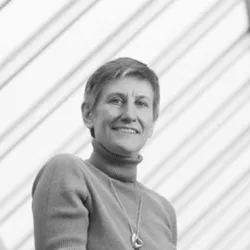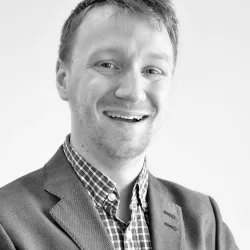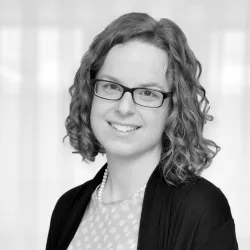International Conference on End of Life Law
Last September in Halifax, scholars Samuel Blouin, Benjamin Gagnon Chainey, and Caroline Lieffers attended the International Conference on End of Life Law, Ethics, Policy, and Practice co-organized by 2015 fellow Jocelyne Downie as part of her Pierre Elliott Trudeau Foundation fellowship project. Here, the scholars share their highlights of an event that spanned such disciplines as law, medicine, nursing, philosophy, and bioethics, and was attended by practitioners, academics, NGOs, regulators, and policymakers.
Highlights of the Conference
What constitutes a good death? And how do we ensure that people achieve it? As ICEL2 demonstrated, these questions and their answers are complex, and they will require a lot of hard work to untangle and understand. Death remains a taboo subject in our society, but this may be changing. As it should. We need to have more conversations about illness, care, and death in order to ensure that people are safe and respected even to the final moments of their lives. There’s still a lot of work to do: one point worth noting is that while most Canadians would prefer to die at home, few manage to do so. Our palliative care is piecemeal and insufficient, ableism all too often colours our sense of self-worth or the worth of others, and we have unanswered moral and procedural questions about advance directives for assisted dying. Can we make decisions for an unknown future self? Is happiness the better part of dignity? How do we know when our life’s purpose will end? Accepting and talking frankly about death, especially assisted death, troubles our belief in life’s inherent and persistent value and asks us to make new rules. ICEL2 was a place to talk openly about some of these issues, and such conversations should continue at doctors’ offices, in communities, and around dining room tables. - Caroline Lieffers, 2015 Pierre Elliott Trudeau Scholar
Nearly two years after the Act respecting end-of-life care came into force and legalized medical aid in dying in Quebec, and more than a year since the passage of the federal act on medical assistance in dying, this conference in a sense constituted the first academic assessment of the Canadian experience. The comparison with the experiences of other jurisdictions where medically assisted dying has been practiced for longer – including Belgium, the Netherlands and certain states in the U.S. – was instructive. Several speakers noted that in comparison with these other jurisdictions, Canada has implemented this new practice relatively rapidly, in light of both the number of requests and the progress of deliberations on expanding the access criteria, in particular for mature minors and for patients in whom mental illness is the sole medical condition underlying the request. But this observation was nonetheless accompanied by recommendations from our international colleagues that we proceed cautiously. The Canadian laws on medically assisted dying may have been inspired by data and discussions from other countries. But this time, all eyes are on Canada, as witness the worldwide adoption of the expression “medical aid in dying”, coined in Quebec to talk about euthanasia and since adopted throughout Canada to talk about both euthanasia and assisted suicide. Our collective responsibility is hence all the greater. - Samuel Blouin, 2016 Pierre Elliott Trudeau Foundation Scholar
The conference showed that the end of life is a stage on which complex issues are played out, of which the patient’s “intolerable suffering” is one of the most fundamental. But when exactly, in the face of such hard-to-define “intolerable suffering”, does death become “appropriate care”? And if medical aid in dying is a "relational and transformational act," how does it transform not only the roles of caregivers, patients, and their families, but also our sociocultural relationship with death? No single discourse can claim to answer all of these questions – literally, questions of life and death – especially since the very words that we choose to talk about them are fraught with consequences. From “assisted suicide” to “euthanasia” to “medical aid in dying,” the name that we use to discuss the act has an important impact on its nature, its meaning, and its social acceptance. Thus, any discussions about the end of life must be staunchly interdisciplinary, and the Halifax Conference represented a part of this effort to harmonize the voices conferring around the dying patient’s bedside. For example, physicians and lawyers discussed the porous boundaries between the various types of “palliative sedation”, while other bioethics panels questioned the “eligibility criteria” for this ultimate right to “choose one’s death.” Another session provided a philosophical overview of the “narrative transformations” of our ways of naming – and of performing – a death that is both “dignified” and, above and beyond all taboos and paradoxes, in keeping with the sacredness of life.- Benjamin Gagnon Chainey, 2017 Pierre Elliott Trudeau Foundation Scholar
What they got from the conference
I was deeply impressed by the high level of discourse, attentiveness, and compassion demonstrated by speakers and attendees at ICEL2. End of life care and assisted dying are obviously complex, emotionally fraught, and deeply controversial subjects, but every speaker showed a genuine desire to do good and to respect the lives, experiences, and fears of others. Many disabled Canadians, for example, are concerned that the expansion of medical assistance in dying will devalue their lives, whether in their specific encounters with the health care system, or in a more general sense, as society reinforces people’s prejudiced assumptions that certain kinds of pain, illness, or dependence make life not worth living. Can physical pain, psychic suffering, and self-stigma ever be disentangled? How do we weigh immediate agony and the desire for relief against the long-term project of destigmatizing human difference and dependence? How can the medical profession overcome its history of violence? These questions and concerns must guide our future, and ICEL2 gave me hope that our national conversations on end of life care will be thoughtful and aim to do right by all members of Canadian society. - Caroline Lieffers, 2015 Pierre Elliott Trudeau Scholar
Several times during the conference, I felt that some of the other participants and I were rather troubled by the quantitative data presented on the subject, in particular the numbers of requests accepted and rejected in various countries, including Canada. How should we interpret such data? What is an “acceptable” rate of medically assisted deaths out of any given total number of deaths? What is a “normal” rate of refusals of requests for medical aid in dying: 10%? 30%? What do these figures even mean? Disparities from region to region and individual to individual were another source of concern. The expressions of concern were often accompanied by calls to step back and apply the insights of the social sciences and humanities to gain some perspective. Interest in such an approach – as opposed to the clinical, epidemiological, ethical, and legal perspectives that currently dominate studies on aid in dying – was especially strong among Foundation scholars from the disciplines of sociology, history, and literature who attended the conference. The conversations on aid in dying are ripe for contributions from these disciplines. - Samuel Blouin, 2016 Pierre Elliott Trudeau Foundation Scholar
Samuel Blouin’s interview on Radio-Canada (in French only)
The Halifax Conference gave me a better understanding of the tensions between scientific evidence-based practices, on the one hand, and the limitations imposed by the law and the ambiguities raised by the medical humanities, on the other. This conference convinced me of the need for interdisciplinary coordination of the ethical debates about the end of life, so that medical and legal perspectives can be questioned from the standpoint of the humanities, enabling us to better contextualize medically assisted dying historically, sociologically, and culturally. When it is a matter of death (in this case, a “chosen” death), and of a human being who is suffering, science and the law have to deal with vast grey areas that are often uncomfortable. As Linda Ganzini, a psychiatrist from the U.S. challenged us at one of the plenary sessions, we must listen to the things that disturb us and take them into account. The medical humanities enable us to address head on the things that disturb us, that seem profoundly subjective and that sometimes escape the grasp of scientific and legal scholars. Roeline Pasman, who is a nurse, a sociologist, and a professor, told us about a qualitative study in the Netherlands which showed that physicians often had difficulty in “conceiving” or “imagining” the extent of the “intolerable suffering” experienced by the patients who were asking for their help in dying. What we are talking about here is the capacity for empathy – the ability to feel the suffering that someone else is experiencing – and it is the cross-pollination of these discourses that will enable medical/legal efforts to embrace all the facets of the end of human life. - Benjamin Gagnon Chainey, 2017 Pierre Elliott Trudeau Foundation Scholar





